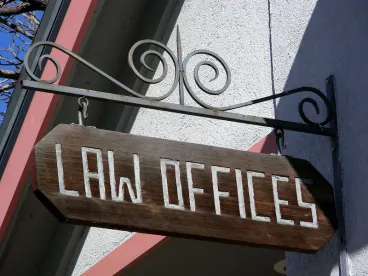As we recently highlighted, trade secret misappropriation lawsuits brought by law firms against departing attorneys are not a new phenomenon, but the number and intensity have increased over recent years.
Our last article addressed several trade secret lawsuits that sought monetary damages, but not injunctive relief limiting the attorneys’ ability to work. But can law firms in fact seek injunctive relief against former attorneys, prohibiting them from working with their former clients?
The American Bar Association (ABA) Standing Committee on Ethics and Professional Responsibility has consistently advocated for a client’s choice of counsel, regardless of whether the attorney changes firms. To that end, the ABA released Formal Opinion 489 in 2019, which provided guidance regarding ethical obligations when lawyers change firms. According to that guidance, although firms may require resignation notice periods, the client’s interest may not be affected by the notice period. Simply put, “[t]he ethic rules do not allow non-competition clauses” for attorneys.
Notwithstanding this guidance, the ethical rules focused on non-competition clauses are silent as to trade secret lawsuits. Formal Opinion 489 recognizes the need for firms and departing attorneys to work together before and after the attorney’s departure to provide seamless client service. But if a client has not directed the departing attorney to move its legal work, the ethical rules seem to make clear a trade secret claim is available to the firm:
A departing partner may be required to return or account for firm property, such as intellectual property, proprietary information, and hardware/phones/computers, and to allow firm data to be deleted from all devices retained by the departing attorney unless the data is part of the client files transitioning with the departing lawyer.
Formal Opinion 489 at 3.
The duty of confidentiality requires that departing attorneys return and/or delete all client confidential information in their possession unless the client is transferring with the departing attorney.
Id. at 4.
However, Formal Opinion 489 does not go so far as to allow attorneys to be “walled off” from certain clients if confidentiality violations are discovered.
The prohibition against non-competes seems to extend to non-solicitation of clients’ provisions, especially in states which require non-solicitation provisions to be analyzed under non-compete reasonableness factors such as geography, time, and scope activity.
To sum it up, while law firms may have recourse in the form of monetary damages when their former attorneys engage in trade secret misappropriation, actual prohibitions on competition (and injunctive relief enforcing the same) run up against ethical standards that may make them a non-viable option.




 />i
/>i

